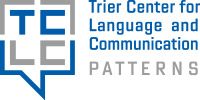Guest lecture: Prof. Dr. Sarah Schimke (LMU Munich)
Guest lecture ‘Linguistic and cognitive predictors of noncanonical sentence comprehension in adolescent German learners of English’ by Prof. Dr. Sarah Schimke (LMU Munich), starting at 12:00 in A 9/10 and online (Zoom link below).
Abstract
In this talk, I will present data from a research project in which we investigated the linguistic and cognitive contributions to the processing and acquisition of complex syntax in an early foreign language. In two visual world eye-tracking experiments, we tested the online and offline comprehension of WH-questions and relative clauses in a group of 141 low-intermediate L1 German adolescent learners of English as a foreign language. Moreover, we assessed the language learning history and language use, L1 German and L2 English proficiency, cognitive control, and cognitive capacity in all participants.
In a first study, we looked at the influence of cognitive and linguistic predictors on the reanalysis of object relative clauses in the L2 English. The results showed a strong subject preference for L2 relative clauses. Learners’ L2 proficiency and their processing of an easier syntactic structure in the L2, object questions, predicted reanalysis for object relatives in eye movements, reaction times, and comprehension accuracy. In contrast, there was no evidence that cognitive control or working memory systematically affected the processing of object relatives. This suggests that the specific linguistic (processing) experience of learners in the L2 affects their syntax comprehension.
In a second study, we looked more closely at the apparent lack of influence of the L1 on early L2 processing, by studying in detail how heuristic and detailed morphosyntactic processing was employed in the processing of WH-questions in the L1 German and the L2 English. We found that while an agent-first strategy was dominant in the L2 English, particularly in early measures, processing in the L1 German was more strongly influenced by an animacy-based strategy. This suggests that heuristics differentially affect syntax comprehension, depending on learners’ linguistic experience.
Taken together, these results suggest that L2 proficiency and experience with processing the L2 are the predominant determinants in L2 syntax comprehension, while L1-specific experience and processing strategies as well as differences in cognitive variables and in the linguistic background are comparatively less important.


